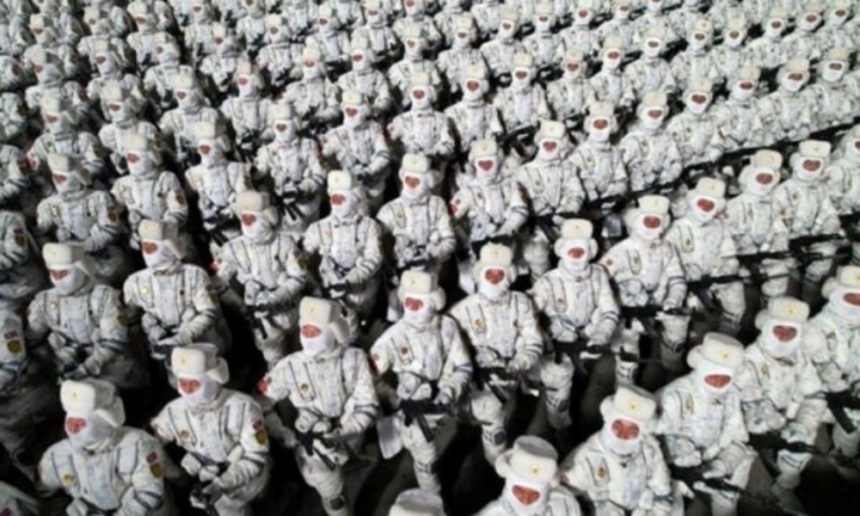The increasing involvement of East Asian powers in the ongoing Ukraine war is going largely unnoticed. In addition to the recent arrival of at least 10,000 North Korean soldiers on the Russian side, and the growing influence of China, Japan, and South Korea, the question arises whether these nations are leading a proxy conflict in the war-torn Ukraine. According to Foreign Policy, the answer to this question is yes, and all indicators point in that direction.
Russia’s aggression against Ukraine has all the characteristics of a proxy war. Moscow has openly articulated that Ukraine is not an independent nation, and the true goal of the invasion is the West, particularly the United States. NATO members and several other Western countries are supporting Ukraine in this conflict by supplying weapons.
While defending Ukraine, the West is, in fact, aiming to weaken Russia, a sentiment clearly expressed by U.S. Defense Secretary Lloyd Austin, who publicly admitted that he “wants to see Russia weakened,” according to Foreign Policy.
But what about the East Asian countries involved? Is this their war, and if so, what is their goal?
China’s Strategic Relationship with Russia
Let’s start with those on Russia’s side. While China has been cautious about openly supplying Russia with weapons since the beginning of the war, it has worked hard to ensure Moscow has the means to continue its aggressive actions in Ukraine. Not only did China oppose Western sanctions, but it also used its influence in the Global South to reduce international condemnation of Russia.
Russia, it should be noted, imports most of its military goods and components from China. According to U.S. Secretary of State Antony Blinken, China now supplies Russia with about 90% of its microelectronics imports and 70% of its machine tool imports.
Customs data reveals that Beijing sends Russia more than $300 million worth of dual-use goods every month. Moreover, the Chinese military participated in joint drills in Belarus this summer, just a few kilometers from the Polish border.
North Korea Takes a More Direct Approach
On the other hand, North Korea has taken a far more direct approach. Early in the conflict, they were one of only five countries to vote against a UN resolution condemning Russia’s aggression. Now, they have ratified an agreement that commits both nations to assist each other in case of an attack.
North Korea has supplied Russia with artillery shells and ballistic missiles to replenish its dwindling ammunition reserves. But the most significant development came last month when North Korea sent approximately 10,000 soldiers to Russia, some of whom are already fighting in the Kursk region. According to available information, the first wave of North Korean soldiers is now returning home in body bags.
Two U.S. Allies Stand with Ukraine
Two U.S. allies, Japan and South Korea, have supported Ukraine since the beginning of the war. Japan initially coordinated sanctions with its Western partners, and its methods of assisting Ukraine are manifold.
Japan has become one of Ukraine’s largest donors, providing military vehicles, drones, and $12 billion in other forms of aid. Japan also revised its export restrictions, allowing the transfer of Patriot missiles to the U.S., helping maintain the U.S. stockpiles, despite some of these weapons being sent to aid Ukraine.
Japan has also contributed diplomatically by leveraging its connections to gather international support for Ukraine. For instance, during Japan’s G-7 presidency in 2023, then-Prime Minister Kishida Fumio invited countries from the Global South to the summit, allowing Ukrainian President Volodymyr Zelensky to attend and meet with representatives from various countries.
Meanwhile, South Korea has refrained from supplying weapons to Ukraine since the war’s inception but has provided substantial humanitarian aid and demining and military equipment. They have also joined sanctions against the Kremlin and, like Japan, contributed to U.S. ammunition reserves, supplying artillery shells that have been used to support Ukraine’s efforts.
Conclusion
The involvement of East Asian powers in the Ukraine war is growing, but it is often overshadowed by Western support for Ukraine. China, North Korea, Japan, and South Korea are playing pivotal roles, whether through direct military support, diplomatic influence, or economic assistance. As the war in Ukraine continues, it’s becoming increasingly clear that East Asia is leading a proxy conflict in the region, imposing their interests on the global stage.







